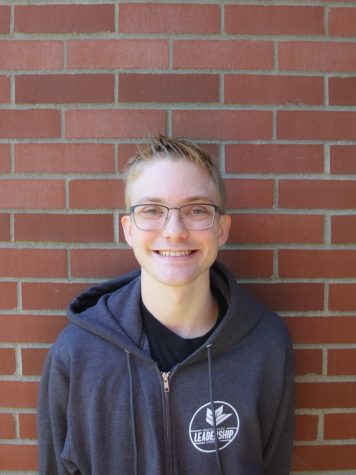Fall seasons delayed, athletes adjust
Competition postponed until at least November 30th
September 9, 2020
Many memorable events occurred in the Fall of 2019 for the Seattle Pacific University Falcons. The men’s and women’s cross country teams both had top five finishes at the Great Northwest Athletic Conference championships.
Men’s soccer came back from a 3-0 deficit against Point Loma Nazarene University to win 4-3 in overtime in front of a cheering crowd of 855 people. The GNAC Women’s Soccer Championships were played at Interbay Stadium for the first time, and while the Falcons lost in the final to Western Washington, Interbay saw over 900 fans enter the gates on the weekend.
In the Fall of 2020, the world is at a different point and time than it was even a year ago. With COVID-19 still a sizable problem in the places where members of the GNAC reside, the GNAC CEO board voted unanimously to suspend the fall season until November 30.

According to GNAC commissioner Dave Haglund, the decision was made in order to keep student-athletes as safe and as healthy as possible.
“There is no greater priority than the health and well-being of our student-athletes and this action is reflective of the GNAC’s commitment to this prevailing principle,” Haglund said in a written statement when announcing the suspension.
While the decision makes sense to the Falcon coaches, it’s also a big change for them.
“This is the first Autumn since 2003 that I have not been involved with cross country in some way,” said assistant cross country coach Chris Reed through a zoom call.
Even if the sports seasons do resume in the Spring, there will not be a national championship waiting for any school in Division II to win. On August 5th, the division II president’s council decided to cancel the 2020 championships for all seven of its Fall sports. The council did not feel it would be possible to host these championships in either the Fall or the Spring.
While this is a blow to every Falcon athlete, it is not the first blow that the Men’s and Women’s cross country team have taken. It’s the second season in a row that the teams were unable to compete, the spring track and field season being the first.
“When they lost the track season, the saving grace was the ability to look forward to cross country, and that’s what helped them get through things over the Spring and over the Summer, and then losing that, it just feels very deflating,” Reed said.
Reed and the other coaches conducted individual meetings with athletes throughout the Spring and the Summer in order to still be present in their lives, and are working to keep the team unified throughout this time of separation.
“The athlete-coach relationship is a really special one, it’s a two-way, trusting relationship. We’re there for them all the time, but especially in the more difficult times,” Reed said. “This is just the last time we want to make them feel abandoned or anything like that. We look at them a lot like family,”
Coaches in other sports also used Zoom over the Spring to connect with their players, but have slowed down on the meetings to allow their athletes to have some form of a summer.
The Volleyball team’s meetings not only had a lot to do with strategy and competition, but with good leadership and how to bond the team together. The meetings are mostly student-led= and involve both games and devotionals. One of the goals is to connect the incoming freshman to the rest of the team.
“We don’t know each other completely well yet, but I think this is a good time to start that relationship and start that process,” head coach Abbie Wright said in a zoom call.
Even though a season is not guaranteed for Volleyball or Men’s and Women’s soccer this year, they are still training and getting ready in the Fall in small, socially distant groups for a possible season in the Spring.
While all the details are not expected to be finalized for a while, the most important thing for men’s soccer head coach Mark Collings is being able to develop his athletes. He wants to win championships, but he also thinks that it’s important for him to help his players grow as men and become members of society. Whether the team plays or not this season, Collings feels he will be able to achieve that goal, and is excited for the University to welcome students back to campus.

Wright feels similarly, emphasizing the youth of her team, with all but three athletes being a combination of freshman and sophomores.
“If our culture and our volleyball skill gets better, that’s going to be huge for the years to come. We’re a really really young team, and so I think that’s going to be a big deal moving forward, trying to build and become a good program,” Wright said.
For the athletes of the cross country teams, getting back to practice will not only be important for their preparation for a possible indoor track season in the Winter, but the ability to gather together and practice at all will be a blessing, though they can only do so in groups of five.
“All we can do is create the best possible experience for our student-athletes that we can. I think they need it now more than ever, and if they can look at practice as something to truly look forward to and thrive in, then that’s something we’re excited to provide them,” Reed said.

























































































